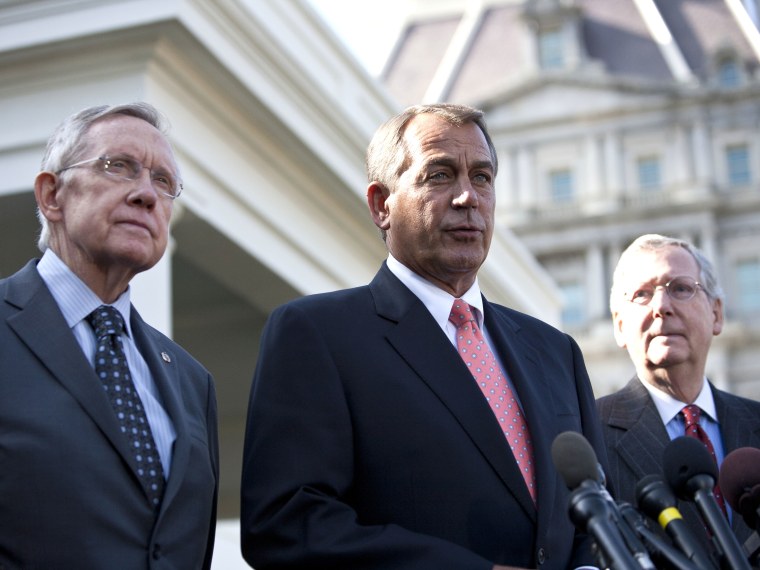Rush Limbaugh told listeners today that congressional Republicans may have a popular mandate after their midterm successes, but they "
were not elected to govern."
That's not a typo. One of the nation's most prominent Republican media voices wants to make one thing clear, right now, in the wake of a GOP triumph: there are those within the party who are eager to prove that Republicans can govern. And those people are wrong.
National Review, a leading conservative outlet, fleshed out a very similar argument this morning, warning their GOP allies of "
the governing trap."
The desire to prove Republicans can govern also makes them hostage to their opponents in the Democratic party and the media. It empowers Senator Harry Reid, whose dethroning was in large measure the point of the election. [...] A prove-you-can-govern strategy will inevitably divide the party on the same tea-party-vs.-establishment lines that Republicans have just succeeded in overcoming.... Even if Republicans passed this foolish test, it would do little for them. If voters come to believe that a Republican Congress and a Democratic president are doing a fine job of governing together, why wouldn't they vote to continue the arrangement in 2016?
It's a fascinating perspective.
1 Governing would require some compromise.
2. Compromising makes you a "hostage," which is unacceptable.
3. Ergo, don't try to govern.
The goal of this attitude isn't to advance the nation's interests, even incrementally. Rather, the argument -- reaching levels of public cynicism that are truly awe-inspiring -- is that the sole focus of a political party is to do nothing until that party has absolute power over all branches of government.
Danny Vinik had
a good take on the piece, describing it as "indicative of how dysfunctional Washington has become."
When most legislation could pass by majority vote and policymakers frequently crossed party lines, divided government could still enact new laws and programs. That is no longer the case. We're rapidly entering an era where a party must control the White House, House and Senate -- the latter with a filibuster proof majority -- to move legislation. If you don't control all three, then your best political and legislative strategy is not to compromise, but to play politics so that you can control all three in the future. The National Review editors have figured this out.
The question now becomes whether congressional Republicans find the argument persuasive.
